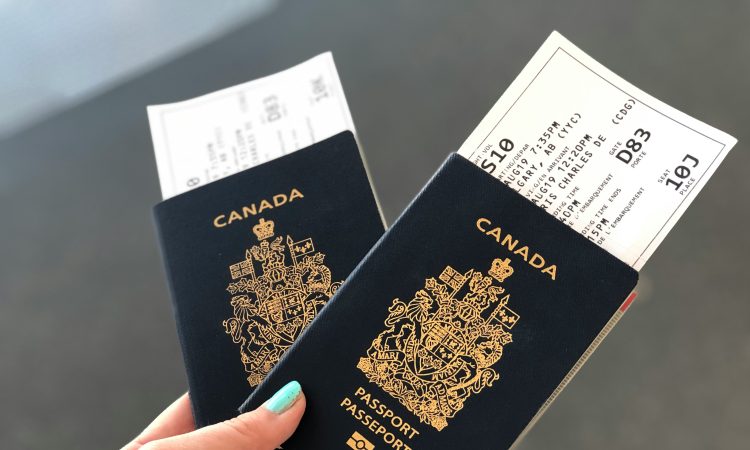|
Getting your Trinity Audio player ready...
|
A report by the Canadian Diplomatic Family Network found that 92% of spouses of Canadian foreign service workers posted abroad identified employment as a key factor in both their quality of life and overall satisfaction with overseas assignments. Predictably, the results also showed limited or non-existent government employer support mechanisms for spouses. The adage of “two jobs, one career” seems to be as prevalent today as it was in the 1970s, when spouses were referred in official documents as “Encumbrances.” For foreign service officers [FSOs], being posted overseas is an employer occupational requirement, not an employee’s choice.
In addition to diplomats, Canadians posted overseas include military personnel, police, officials from other government departments, provincial officials and, of course, private-sector employees. I will focus on government workers’ spouses because, to my knowledge, not much is known regarding the situation of rotational, private-sector employees.
There are few – if any – government mechanisms provided for spouses of employees whose work requires overseas deployments. Despite the fact that, back in 1981, the Royal Commission on the Conditions of the Foreign Service identified loss of pensionable income for spouses as a critical concern, nothing has been done to address it. By 2023, only broad references to spousal employment, pension eligibility and “changing family composition” are found in the latest government pronouncement on conditions of the Canadian foreign service.
There is evidence that providing support measures to allow spouses to develop an occupational track has positive impacts for the employee, the family unit and the life at post. Having their own career reduces isolation, feelings of anxiety and inadequacy as well as provides a certain income that is always welcome, given that the compensation of government employees overseas has not kept pace with the worldwide inflationary pressures. Furthermore, based on my first-hand experience, my knowledge of the circumstances faced by numerous fellow spouses and social media postings by foreign service employees, here are some of the key issues that could be easily fixed, without extra resources or red tape:
Create a single point of exit/return for posted families
When employees return from overseas assignments, families are expected to deal with municipal, provincial and federal relocation matters such as health insurance, drivers’ licenses, education and taxation without departmental support. A mere letter of attestation from the Government of Canada, naming the members of the household, the posting length and expected date of return to Canada, would greatly facilitate the reintegration of rotational families. Setting up a single point of contact through Global Affairs Canada would allow returning and departing employees to fulfill these procedures.
“Having their own career reduces isolation, feelings of anxiety and inadequacy …”
Security screening and clearance
For all federal government positions, whether in Canada or at embassies overseas, obtaining a security screening and/or clearance is mandatory. According to the 2024 CDFN report, 87% of spouses report absence of government support in facilitating the issuance of security clearances.
Institute a teleworking policy
A government-wide policy requiring departments to facilitate telework for government-employed spouses of posted employees would allow spouses to continue their career, provide crucial income overseas and eliminate government waste incurred due to finding and training replacements for spouses on leave without pay or who are forced to resign their positions. Where teleworking arrangements are not possible due to logistical issues, employees should be allowed to accrue their pensionable years of service, as their inability to work is directly related to their spouse’s posting.
Enable access to embassies
Believe it or not, access to Canadian Embassy or High Commission premises overseas is generally not granted to spouses, thereby severely limiting their ability to network for local positions, seek contacts elsewhere in the diplomatic or expat community, or simply be acknowledged as part of the employee’s family unit. Again, a simple policy change granting access to embassy premises to spouses will provide significant relief in this area.
Provide priority support for finding employment
To my knowledge, no government department provides any sustained mechanism to facilitate reintegration of spouses to the labour market upon their return to Canada. Returning spouses, whether employees or not, have no direct access to the pool of government of Canada positions matching their skillsets and experiences. Rather than valuing the skills and experience acquired overseas, returning spouses are treated as lacking the proverbial “Canadian experience” requirement to be considered for regular positions. Furthermore, there is no priority accorded to qualified spouses while serving abroad when seeking employment at the Embassy or Consulate. This can create employment gaps that will severely limit opportunities for career advancement or future employment.
In addition, the Public Service Commission should provide transitional measures for returning spouses. For example, setting aside a number of casual or temporary positions for returning spouses whose skillset matches the requirements of the position. This would allow the returning spouse to reintegrate the labour market in Canada while preparing them to compete for other positions.
Government departments should also support upskilling for departing or returning spouses. None of these measures requires developing new policy authorities; at most, they would expand on existing procedures.
Sacrifice deserves support
Spouses are also posted in the service of Canada and are called on to handle multiple responsibilities, including raising children in difficult or hostile environments, isolated from their sources of support and often ignored by the government employer. While it is a privilege to serve overseas, it is one that is often abused by the government’s indifference, lack of understanding or refusal to respond to the changes in family composition and spousal career factors that can make or break an overseas assignment.
It’s been over 50 years since these issues have been identified, studied and reported. It is time for the Canadian Government to step into the 21st century and provide a modicum of support for the oftentimes-ignored spouses’ self-actualization needs. Their sacrifices deserve our recognition and acknowledgement.




